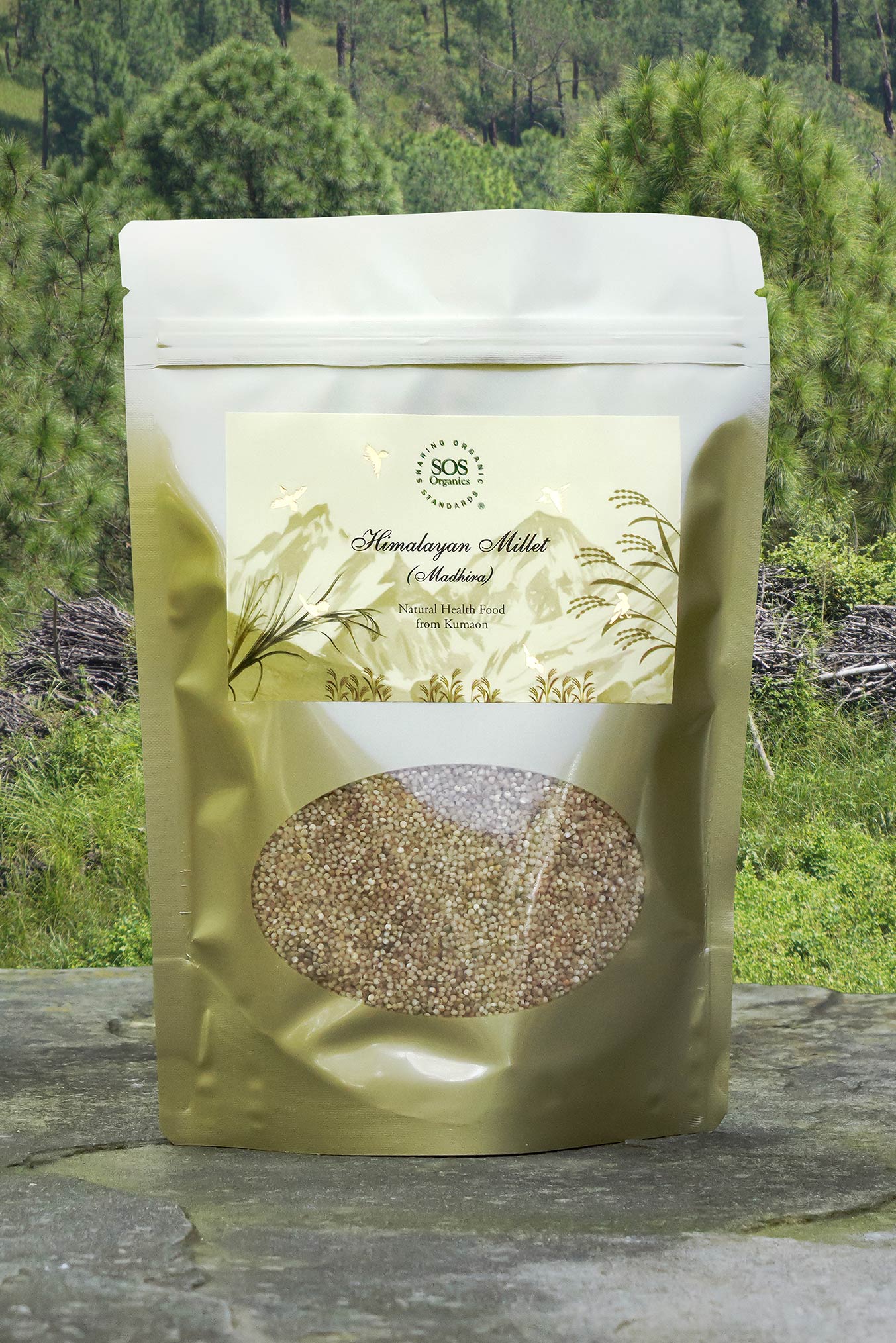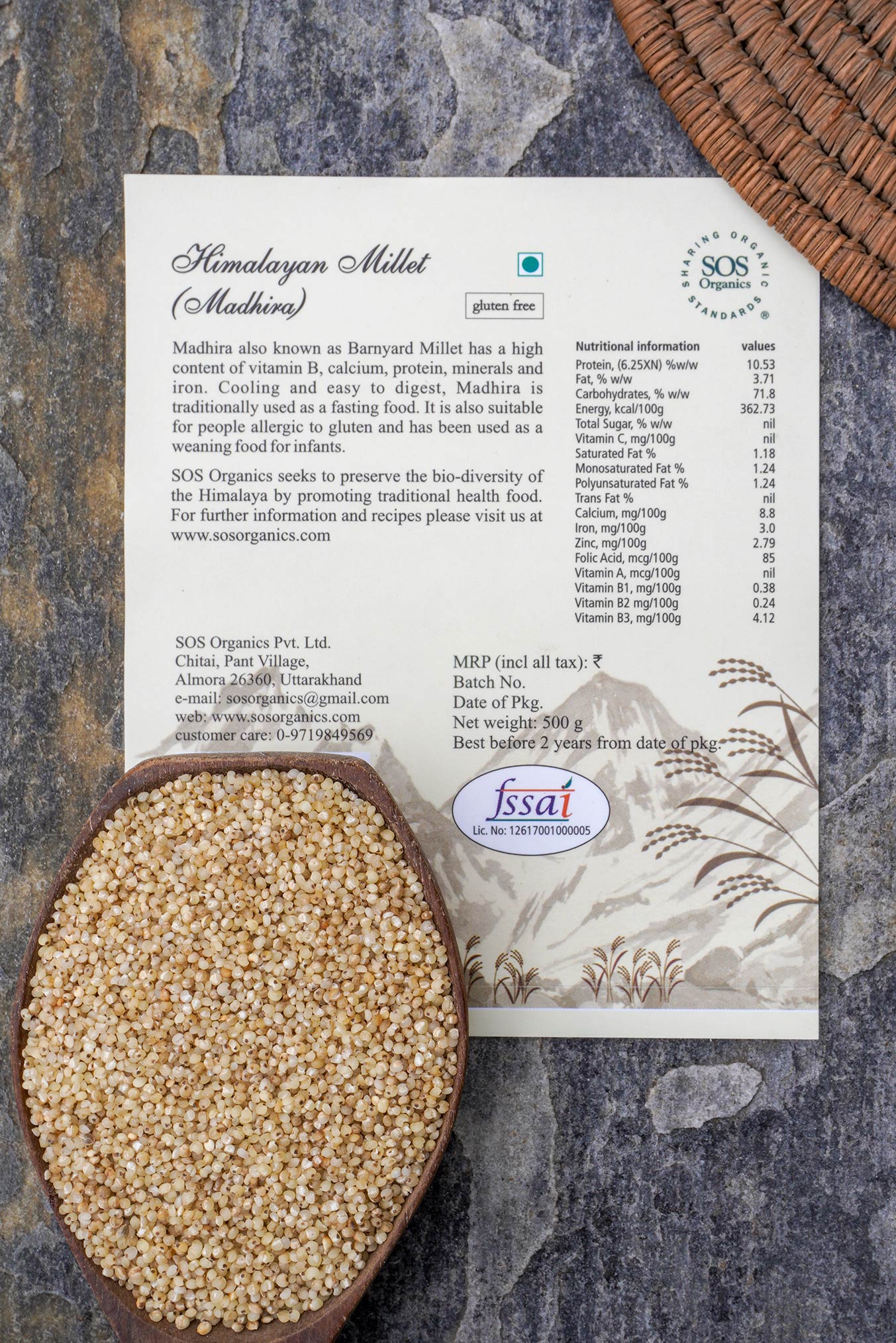Himalayan Millet Madhira: A Nutritious Ancient Grain from the Himalayas
Himalayan Millet, commonly known as Madhira or Barnyard millet, boasts a wealth of nutritional goodness. Packed with essential nutrients like B1, calcium, protein, minerals, and iron, Madhira stands tall as a nourishing grain. Its cooling properties and easy digestibility make it a favored choice for traditional fasting foods and a remedy for acidity and indigestion. Let’s explore the remarkable benefits of Himalayan Millet: Madhira and its versatility as an alternative food for various age groups.
1. A Nutritional Powerhouse:
Madhira is a nutritional powerhouse, featuring a high content of B1, calcium, protein, minerals, and iron. This impressive nutrient profile contributes to overall health and well-being.
2. Cooling and Gentle on the Stomach:
Himalayan Millet: Madhira possesses cooling properties, making it a suitable choice for consumption during hot weather or to balance the body’s heat. Additionally, its easy digestibility ensures that it is gentle on the stomach.
3. A Favored Fasting Food:
Traditionally, Madhira has been used as a fasting food due to its light and easily digestible nature. It serves as a comforting and nourishing option during periods of abstaining from regular meals.
4. Alleviating Acidity and Indigestion:
For individuals struggling with acidity and indigestion, Madhira comes as a natural remedy. Its soothing properties help to alleviate discomfort and promote a healthy digestive system.
5. A Gluten-Free Alternative:
Madhira serves as an excellent alternative for individuals allergic to gluten. Being gluten-free, it provides a safe and nutritious option for those with dietary restrictions.
6. Ideal for Infants and Growing Children:
Madhira’s ease of digestion and rich nutrient content make it a recommended food for infants during the weaning process. Additionally, it serves as a highly nutritious option for growing children, supporting their healthy development.
Himalayan Millet: Madhira is a remarkable grain, brimming with essential nutrients and versatile culinary applications. Its high content of B1, calcium, protein, minerals, and iron contributes to overall health and vitality. With its cooling properties and easy digestibility, Madhira serves as a comforting choice for traditional fasting foods and a natural remedy for acidity and indigestion. As a gluten-free alternative, it caters to individuals with gluten allergies, providing a safe and nourishing option. From infants to growing children and beyond, Madhira stands as a highly nutritious and versatile grain, enriching your culinary journey with its wholesome benefits.
Sourced from organic produce and hand-sorted in Himalayan villages, all our produce is grown naturally without the use of harmful chemicals in our effort to preserve the biodiversity of the Himalayas and to sustain indigenous crop.
vegetarian, gluten free
(net weight: 500 gram, packed in a golden resealable pouch)
Why eat Organic
Throughout history, unadulterated foods have been the foundation of the human diet. However, in the mid-20th century, chemical and factory farming became prevalent to increase crop yields. Unfortunately, these practices have resulted in significant environmental and economic imbalances, affecting the health of animals, plants, micro-organisms, soil, oceans, atmosphere, and humans. Even those with technology and wealth are not immune to the adverse effects of an unhealthy environment.
Maintaining good health has become a challenge in today’s polluted urban environment due to contaminated water, air, and food. As our urban population grows, we see the negative impacts of rapidly changing lifestyles, poor diets, and lack of exercise. When we consume polluted food, we carry that pollution in our bodies, accumulating toxins and developing diseases such as obesity, diabetes, and heart disease.
Children are particularly vulnerable to agricultural toxins, as they consume more than their size. Shockingly, the average child is exposed to four times more cancer-causing pesticides found in food than the average adult. It’s time to prioritise clean, unadulterated food and recognise the importance of a healthy environment for the well-being of all.









